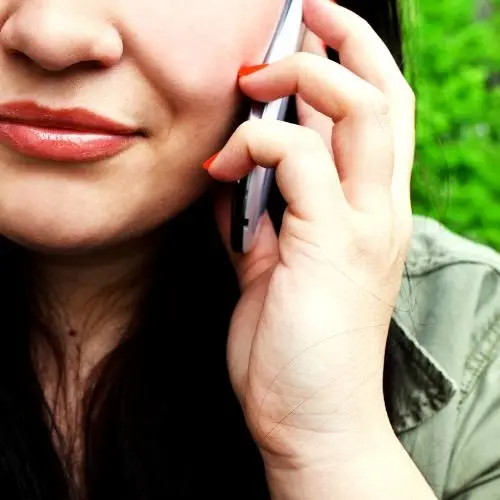How to Sign Up For Calls From Inmates
Your comprehensive guide to getting inmate calls at the lowest cost.
Research studies show how positive family relationships help reduce recidivism. It provides inmates with a strong support system that helps them turn their life around upon release.
How To Call An Inmate The First Time
It’s understandable for family members to worry when a loved one gets arrested. The normal reaction would be to want to call them in prison.
Unfortunately, inmates can only make one phone call while their booking is being processed. If they want to make another call, they’ll have to wait for 24 hours.
Then they’ll have to submit their contact list and have it approved by authorities. Once their contact list is approved, they’ll need someone from the outside to put money into their jail call account. Otherwise, they can only make collect calls.


Signing Up To Receive Inmate Calls
- Make Sure You Are In The Inmate’s Contact List
Since most prisons only allow calls to pre-approved contacts, you need to make sure you are in the inmate’s approved contact list. If the inmate hasn’t memorized your number, you can include it in a letter you send them.
- Make Sure You Are Eligible to Receive Calls
If the inmate doesn’t have enough credits on their jail call account, they can call you collect. Sometimes network providers automatically block collect call features of their subscribers. Contact your network provider to make sure your call collect function is activated.
- Set-up Your Jail Calling Account
First, you have to know what telecommunication company is providing the jail calling services in the facility where the inmate is locked up. Then look up the company online to know how you can sign-up for their services.
Cost of Jail Calls in the US
In the US, most jails and prisons have a contract with a private jail call provider. They provide the infrastructures as well as a system to monitor and regulate jail calls. In return, they will have exclusive rights to provide prison call services to the inmates.
As a result, these companies often get away with charging exorbitant prices for jail calls. In fact, according to the Federal Communications Commission, inmate families are paying up to $17 for a 15-minute call. This means that a 30-minute call once a week can cost up to $136.
Such exorbitant prices are definitely beyond the financial capacity of most inmate families. Especially since most of them are living off on social security checks. For them, it’s a constant struggle between talking to their loved ones in prison or putting food on the table.
To help lessen the inmates’ burdens, legislators across the country are attempting to curb the cost of jail calls. In 2014, the FCC introduced a rule that puts a cap on jail calling rates. Under the new rule, companies can only charge up to 21 cents per minute for prepaid calls and 25 cents for collect calls. But interstate and long-distance calls may rack up additional charges.
In 2016, the agency tried to lower it further but the bill was stayed and vacated by the court.
How to Make Cheaper Jail Calls
To increase talk time with their loved ones, inmates and their families are finding ways to reduce the cost of jail calls. Companies like GlobalTel are also helping them make cheap jail calls.
We’ve already mentioned that long-distance and inter-state calls have additional charges making them much more expensive than local calls. To circumvent these charges, GlobalTel gives families local numbers that the inmate can call.
Once the inmate calls this local number, the call will then be forwarded to the person they are calling outside the state. Since the call is made to a local number, local rates will apply. This helps inmates and their families save on jail calls and use the money on other needs.
For only $45.99, GlobalTel subscribers get access to a local number for 90 days and consumable minutes equivalent to that amount. Every time the inmate calls your number, the charges will be deducted from your account. Click here to sign up for GlobalTel inmate calling service.
If you are outside the US, GlobalTel offers the lowest rates for international jail calls. Calls can only cost as low as $0.001 per minute. You also won’t have to worry about sign-up fees or any hidden charges. They also let you cancel your subscription or change your destination number anytime. For federal inmate calling click here.
Aside from phone calls, GlobalTel also offers cheap jail mails and postcards. For only $0.52, you can design personalized postcards for inmates on your PC. Then we’ll print it and send it to the inmate wherever they are incarcerated.
Rules on Inmate Calls
The law gives wardens and jail administrators full authority over jail call policies. As a result, rules on inmate calls vary across each facility. Some of the most common jail calling rules being implemented in jails and prisons across the country are:
Call Time
Though most jails and prisons observe a call time for inmates, it can vary for each facility. Some prisons allow inmates to make calls starting at 8:00 in the morning up to 11:00 in the evening. While other facilities start as early as 7:00 AM.
In emergency cases, the inmate may be allowed to make calls outside this time frame. But of course, it still depends on the warden.
If there are problems in the facility or a lockdown is being implemented, it can affect the facility’s jail call time.
Time Limit
Jail calls are usually limited to 15 minutes of talk time. After that, the inmate will have to wait an hour before they can make another call. But in some states like Washington, prisoners can call as much as they want, provided they don’t hog the phone to themselves.
In Texas, state prisoners have to work for a phone call. If they are not doing productive activities like working or attending classes, they can’t use the phone. On top of that, calls can only last up to 5 minutes and they have to make a request in writing.
Three-Way Calling
For security reasons, three-way calling is strictly prohibited in most jails and prisons. Only the person the inmate is calling and is on their approved calling list can talk to the inmate. Inmates who are caught in a three-way call may lose their phone privileges or be put in solitary.
Calling List
Before implementing the calling list policy, prisons have a huge problem with prisoners dialing random numbers. Though we can’t blame them (prison can be really lonely), it still caused a ruckus in the community. Imagine receiving a random call from a random guy in prison and paying for the collect call.
To put an end to this and for other security reasons, most jails and prisons now require inmates to submit a calling list. Inmates can only call those people in their calling list. In facilities with automated calling systems, calls would disconnect if the inmate dials a number that’s not on their list.
Most prisons allow inmates to have up to 25 contacts on their list. But others limit only up to 10 contacts.

Inmate Calling Rules in Federal Prisons
Unlike state and county jails, federal prisons implement uniform jail call rules across the country.
Federal prisoners are only allowed up to 300 minutes of calls per month which resets on a specific day. Any unused minutes during the reset date shall not be added to the inmate’s current minutes.
Calls in federal prisons can also only last up to 15 minutes. If they want to make another one, they’ll have to wait an hour after the start of the previous call.
Most federal prisons also give out information handbook to prisoners upon booking. In it are the guidelines on prison schedule, commissary, inmate telephone services among others.
What Causes Inmates to Lose Phone Privileges?
Inmates may lose their phone privileges temporarily or permanently.
Temporary loss of phone privileges usually lasts between a week to three months. The duration depends on the gravity of the inmate’s offense and the discretion of the warden. The most common reason why an inmate can’t make calls is if they are placed in solitary confinement.
Inmates who are caught abusing their phone privileges may also be banned from making calls for a time. This includes:
-
three-way calling
-
causing a disturbance while using the phone or while waiting in line for the phone
-
abusing or breaking the phone equipment
-
saying inappropriate things over the phone
Assaulting a guard or fellow inmate as well as initiating a riot may also cost an inmate several months’ worth of phone calls.
In some facilities, inmates that are considered security risks may not be allowed to make calls for years.
What Not To Say in a Jail Call
One constant thing in all inmate calling systems around the US is that calls made by inmates are constantly monitored. All calls are recorded and admissible as court evidence. This means that you have to be careful what you tell the inmate over the phone.
In most facilities, a taped message plays over the phone warning the inmate that the call they are about to make will be recorded. But many inmates blatantly disregard this warning. They still talk about things that put them in hot water and cause them to lose phone privileges.
So, what are the things you shouldn’t talk about while talking to an inmate over the phone?
No matter what happens, even jokingly, don’t talk about these things:
-
planning an escape
-
threats
-
criminal activities
-
confessions to crimes
Some inmates also found themselves in hot waters for talking about game scores as these are often used in gambling activities. Prisoners with relationships outside the prison also often talk intimate stuff with their significant others. While this may be acceptable for most jail staff monitoring the call, others may not be so forgiving.
Even if you use code phrases, some facilities employ people who are specially trained to break through those codes. Punishments are often more severe if you are caught using codes while talking.
Calls to lawyers are exempted from this monitoring policy. But you need to apply for an exemption before calling them. But this doesn’t stop some facilities from listening in on an inmate’s conversation with a lawyer. They might not be admissible in court but it can give them bits of information that they can use against the inmate. So just to be on the safe side, watch what you say during calls with inmates.
In Conclusion
Prison not only takes away someone’s freedom. It also deprives them of the opportunity to connect with their loved ones. This is why when a loved one gets carted off to prison, one of the things that you’ll have to worry about is how to contact them.
Well, one thing is for sure: you can’t call an inmate. They call you. And even if you try, the prison staff will not pass the phone to the inmate. Unless it’s a real emergency like a family member’s death or the inmate’s house burning down. But even then, you’ll have to put in your request politely.
This is because a jail call is a privilege, not a right. As such, the government can revoke it as they see fit. In fact, inmate calls were only allowed in the later part of the 20th century. This is when the focus of incarceration shifted from punishment to rehabilitation. The government realized that phone calls to families and friends help inmates adjust better to society upon release.

About The Author
Judy Ponio is a professional writer for the GlobalTel blog. She works hard to ensure her work contains accurate facts by cross checking reputable sources and doesn’t settle for less. Her passion for telling stories about true crime and criminal justice has allowed her to create hundreds of articles that have benefited millions of people.


